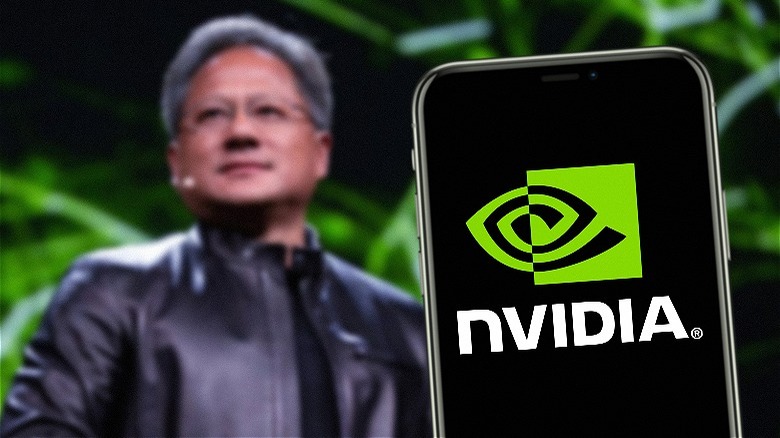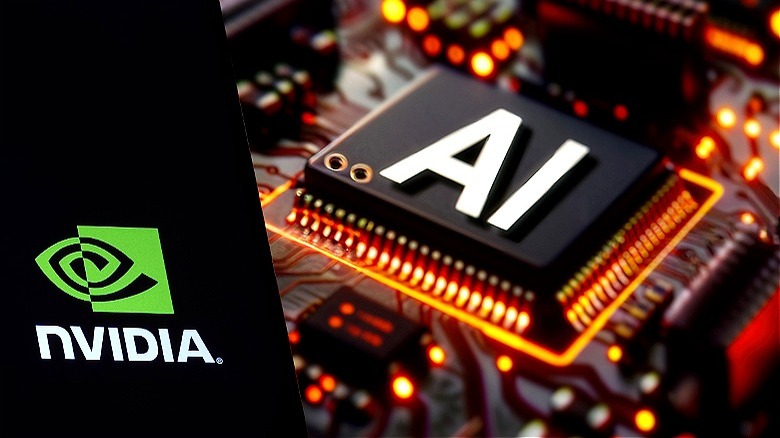You May Already Own Nvidia Stock And Not Even Know It
Graphics processing unit juggernaut Nvidia (NASDAQ: NVDA) was one of the best performing stocks of 2023, rocketing up an amazing 239% during the course of that year. So far, 2024 looks pretty promising as well for Nvidia shareholders. In the first half of 2024, Nvidia shares are already up more than 150%, with a full six months remaining in the calendar year. Besides high demand from the artificial intelligence industry, some analysts point to its 10-for-1 stock split as a catalyst for further price gains. That stock split on June 10 means Nvidia shares are now at a more accessible price for smaller retail investors.
If you didn't participate in the meteoric Nvidia rally, it's understandable to feel a bit glum, but don't despair. That's because there's a fairly likely chance you did in fact own Nvidia shares and might not even realize it. To begin, Nvidia is a major component of the S&P 500, which has a small army of popular index funds that track the performance of that benchmark index.
Some examples of funds that mimic the performance of the S&P 500 include the SPDR S&P 500 ETF Trust (SPY), which bills itself as "the original S&P 500 ETF." There's also the Vanguard S&P 500 ETF (VOO), which is owned by legendary investor Warren Buffett and rated "Gold" by the research firm Morningstar, just to name a few of your many choices.
Nvidia is among the 3 largest S&P 500 companies
For the uninitiated, the S&P 500 is an approximate collection of the 500 largest publicly traded companies in the United States, as defined by market cap. That is, the total value of their outstanding shares of stock. The largest three publicly traded companies, both in the U.S. and in the S&P 500, are currently Microsoft, Apple, and Nvidia. Over the past several months, those three businesses have swapped positions several times regarding which is the first, second, and third largest. As of July 2, 2024, Nvidia comprised 6.52% of the S&P 500 index (here's how often it rebalances).
What this means is that if you own one of the various exchange-traded funds that track the performance of the S&P 500 by replicating its composition in the same proportions, then you own Nvidia shares as 6.52% of those ETF shares. In simpler terms, if you own $10,000 worth of the exchange traded fund VOO, for example, then you currently own $652 worth of Nvidia.
Some technology ETFs own NVDA as well
Besides those index funds that track the performance of the S&P 500 index, Nvidia stock is also a component of many other actively managed funds. In particular, those that focus on technology and artificial intelligence. According to the news and analysis site etf.com, the Global X Robotics and Artificial Intelligence ETF (BOTZ) has a 9% position in Nvidia. As well, the VanEck Semiconductor ETF (SMH) has 20.7% of its assets invested in Nvidia. Finally, the Technology Select Sector SPDR Fund (XLK) has 4.6% of its current holdings in Nvidia. However, because XLK is such a massive fund, that 4.6% represents over $3 billion worth of Nvidia shares.
Finally, you might unknowingly own Nvidia shares via participation in a pension plan or other institutional holdings like a sovereign wealth fund or endowment. However, if you haven't been participating in the great Nvidia rally, either directly or unwittingly, it might not be too late to join. Of course, you'll want to do your own due diligence or consult with a financial adviser first.
To be fair, some investors comment that Nvidia shares are already priced at a lofty valuation with limited upside. On the other hand, analysts at Bank of America still rate the stock as a "buy" and have assigned a 12-month price target for Nvidia of $150, which is a considerable gain from its July 3, 2024, closing price of $128.28 per share. However, owning NVDA as part of a more diversified ETF or mutual funds removes some of the risk and volatility — for better or worse — of owning shares directly.


